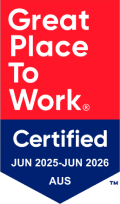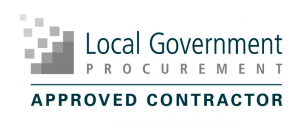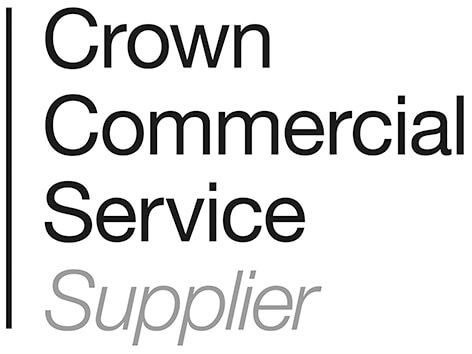Article
24 April 2024
Local government departments are constantly facing increasing pressure to modernise. Citizens and businesses now expect the same level of digital services they receive from leading enterprises. Legacy systems, manual processes, and dated ways of working prevent many councils from transforming to meet these rising expectations.
Fundamental business transformation is required to bring property and rating operations into the digital age. This involves rethinking processes, systems, and capabilities throughout the organisation. Subject matter experts (SMEs) must align beyond their departments to take advantage of capabilities for automation, analytics and digital experiences available in the TechnologyOne ERP solution.
The objective is to achieve more efficient operations, reduced costs, improved regulatory compliance, and higher satisfaction across ratepayers, employees, and other key stakeholders. Modernising services ultimately leads to better fiscal outcomes for local governments.
TechnologyOne’s integrated enterprise platform provides advanced capabilities to enable this business improvement for local councils. In this article, we explore key strategies to enable business transformation within and between operational and administrative teams that use the TechnologyOne Property & Rating product.
Key Areas for Transformation in Local Government
There are five important focus areas where local government departments need transformation to improve operations, lower costs, and deliver better digital services.
1. Automating Manual Processes
For many councils, critical workflows still rely on a team member manually triggering events, creating requests or amalgamating data across multiple systems. Automating these processes through workflows, data integration, and elimination of repetitive tasks can significantly increase productivity and reduce administrative overheads.
Examples include:
- Configuring large batch reminder letters and event processes for annual licence renewals, and reminder letters between multiple departments.
- Automatic debt recovery email and SMS reminders by updating event processes.
- eDocument delivery setup to automate the generation and email of correspondence, such as invoices or inspection reports.
- Reduction of manual data entry and data capture by automating workflow processes in the background.
- Automated application allocation.
- Maximise the use of document templates and drawing down on data stored electronically to reduce manual entry.
2. Implementing Self-Service Portals
Property owners and ratepayers expect to be able to access information and conduct transactions digitally 24/7. Online self-service portals with account access, payments, lodgements, applications, and query functionality can enable this capability.
Examples include:
- Online payments
- Submit, update and track applications
- Lodge customer requests
Local Government Transformation in Action
Discover how City of Yarra revolutionised their business application processes supported by a user friendly online portal that supported economic recovery post COVID-19.
Find out more3. Integrating Systems and Data
Local government departments are, at times, guilty of operating in silos, leading to manual data reconciliation and integrity issues. APIs and interfaces should be implemented to create a single source of truth.
Integration opportunities with TechnologyOne Property & Rating include:
- Mapping
- ePay/Payment portal
- Works and Assets
- Financials
- Enterprise Cash Receipting
- Electronic document management systems, including Enterprise Content Management
- Stamping tools
- Online portals
- Mobile inspection platforms
System Integration in Action
Learn how a large irrigation firm revamped systems to create a robust platform integrating TechnologyOne Financials, Property & Rating, and third-party data sources to automate processes and enhance efficiency.
Find out more4. Enhancing Analytics and Reporting
By integrating systems and consolidating data, advanced business insights (BI) and reporting become available and enable local government leaders to make informed decisions with insights into valuation accuracy, revenue forecasting, service levels, and operational metrics.
Utilising My Analytics, review of Dashboards and Analytics Administration support helps to break down departmental silos and improve information sharing.
5. Digital Checklists
Compliance teams can remove their paper site inspection forms and replace these with digital checklists within TechnologyOne. These checklists can be built into existing digital processes with minimal disruption, enabling inspection results to be immediately available to the customer following an inspection.
Making the Digital Shift
Digitising and automating processes and integrating systems is key for local government digital transformation, but it also presents challenges. Having the right solutions and approach lays the foundations, but realising the benefits requires strategic vision combined with pragmatic execution.
Councils must be prepared to iteratively re-engineer existing ways of operating while bringing staff and stakeholders along the digital journey.
With ongoing planning and change management, TechnologyOne’s Property & Rating solution provides the integration platform to digitise critical workflows. This enables data unification and access that drives efficiency gains and better decision-making.
Changing Culture and Embedding Change
As processes, technologies and roles evolve, staff may need retraining along with leadership committment to champion the change.
Ways that cultural and capability changes can be positively implemented among local government stakeholders include:
- Facilitating customised workshops and refresher training for individuals and teams.
- Providing recommendations for improvement to leaders to champion and become change agents.
- Improving dashboard reporting so that staff can see the positive impact of changes.
- Tailoring BI and analytics to provide leaders with instant transparency.
By focusing transformation initiatives on these high-impact areas, local government departments can make significant progress towards improved efficiency, compliance, service levels and stakeholder satisfaction.
Conclusion
Local government business units face an imperative to transform. Digital technologies, customer expectations, and competitive pressures demand new operating models optimised for efficiency, insight, and stakeholder experience.
By embracing comprehensive transformation across processes, technology, data, and organisation, leaders can reposition their departments for the digital age. This enables improved services, reduced costs, informed decisions, and ultimate ratepayer value.
Digital transformation is a continuous improvement journey, not a one-time initiative. By utilising our consultants with their experience in business analysis in TechnologyOne Ci and TechnologyOne CiA, Lánluas can help you transform your existing TechnologyOne Ci and TechnologyOne CiA investments.
The time is now for local government leaders to define their operational transformation vision, strategically leverage the TechnologyOne ERP solution as an enabler, and lead their teams into a new era of operational excellence. The result will be teams that drive greater community prosperity and sustainable success.
Take the dread out of local government digital transformation with seasoned professionals who care. Get in touch with Lánluas today to tailor a custom strategy for your council.
Sign up to our newsletter for the latest news and insights.
Plus, get exclusive access to our VIP content.


